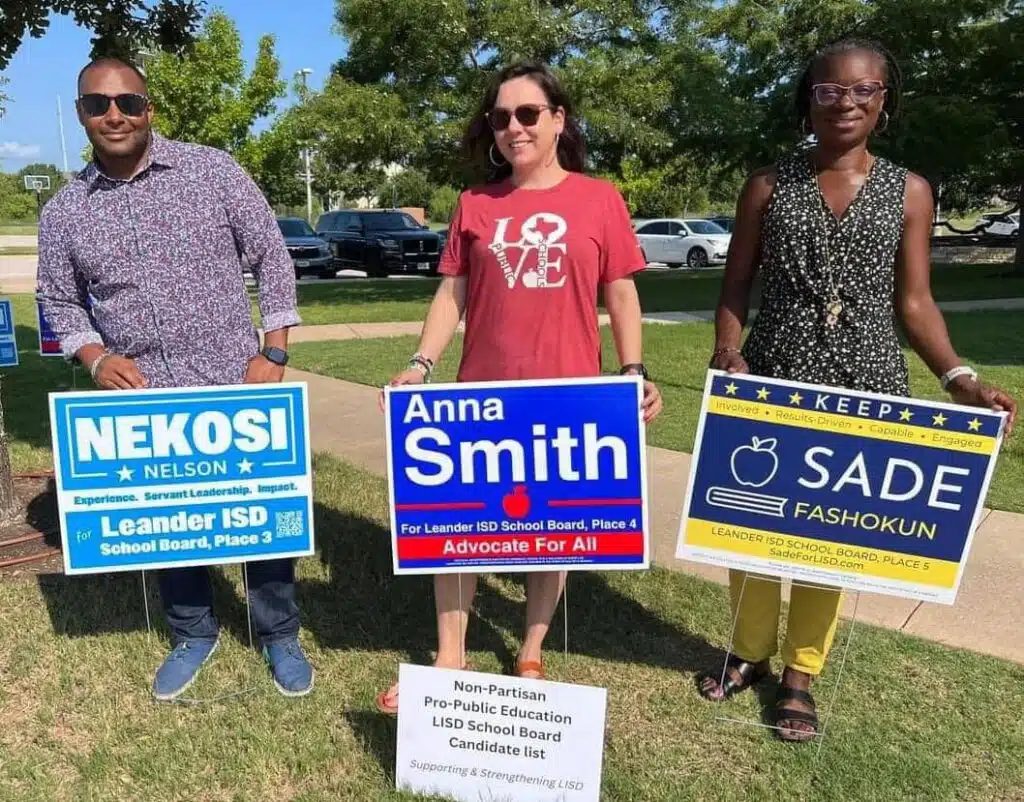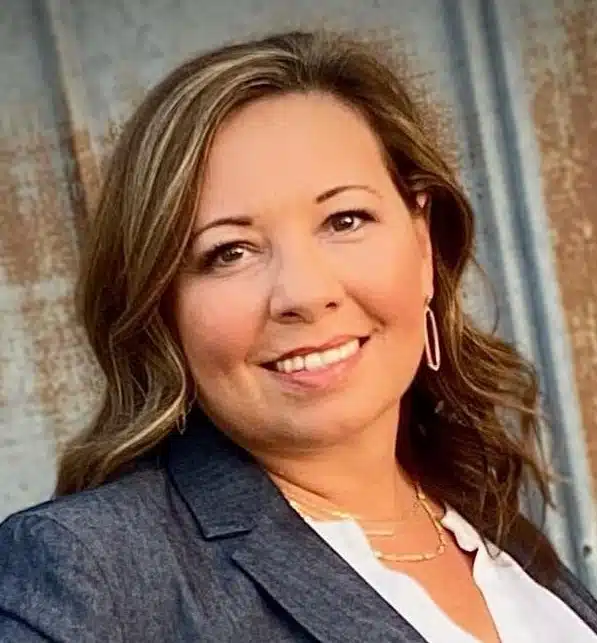
Texas School Board Candidate Exposes Dirty Fact: District-Friendly Incumbents Can Be Just As ‘Garbage’
All campaigns at any level can get ugly, dirty, and downright underhanded. Yet there’s a “positive-vibes only” one-sidedness that often occurs when we’re dealing with public school board races.
The tilted perception of local school board races often goes something like this:
There’s a core of board/district leadership that’s essentially a booster club. To them, the school and any state and federal machinery (and associated teacher unions) can do no major wrong — and therefore, their preferred candidates are automatically assumed to have the moral high ground and have that as an advantage at the ballot box. Win or lose, much like at your alma mater’s homecoming football game, you had better cheer every play the board makes or you’re a traitor. Rah-rah! Or should we say kumbaya?
Then there’s everyone else, who apparently have no school spirit because of their disruption of board harmoniousness. They are immediately accused of having no other agenda than to dismantle public education, take all the kids to private school, and bring the school tax rate down to zero. Why? Because they dare to criticize. Boo! Hiss!
Any thinking voter knows the situation is more complex than the black hats versus the white hats — it’s all very much political, with both Republican and Democratic parties now weighing in, as well as various internecine conflicts taking place as an undercurrent that voters often do not see. Taxpayer-funded lobby groups are not happy about this trend one iota. Florida voters are even considering whether or not to label school board candidates by party like up-ballot races.
According to a study from Pew Research, roughly 72% of Democrats and liberal independents think K-12 public schools are having a positive effect on the way things were going in the U.S. as a whole, while about 61% of Republicans and other conservatives said public schools were doing lasting damage.
As one example of the rising conflict and worsening divide: Leander Independent School District and the three Board of Trustees positions up for a vote on the general election ballot. The district, once the domain of several formerly quiet suburbs north and west of Austin, Texas, has seen significant growth from the boom in the region. Along with that has come a larger contingent of liberal voters and candidates.
The progressive-liberal incursion in schools has only been quietly fought back, if at all, by conservatives — that is until recently, when COVID-related shut-downs and an increasing number of sexually charged books on alternative reading lists gave rise to a phenomenon known as “angry mama bears” and other concerned parents. The Left began to lose their toehold, especially in conservative-leaning Texas suburbs such as Southlake, Texas, in the Dallas-Fort Worth area a few hours north of Austin.
Enter stage left: The pro-incumbent slate running for Leander ISD Board of Trustees — Nekosi Nelson (Place 3), incumbent Anna Smith (Place 4), and Sade Fashokun (Place 5). They are supported by a PAC known as All In LISD, headed by president Celeste Fahrnert, and are endorsed by the Williamson County (Texas) Democratic Party.
That All In LISD leans left is no real secret. Yet their slate gains much traction from the aforementioned public perception of a school board race: That these are the non-partisan, neither right-wing nor left-wing, teacher union darlings who have nothing but pure concern for the education process. And they’re just lightly progressive enough to be for “all” students — a line they often tout. So don’t you dare paint them into a corner. They’re our future, don’t you know?

Perception, however, is not always reality. The pro-incumbent slate can be every bit as combative, rancorous, and sometimes pearl-clutching as their more conservative opponents are often painted as being.

Brandi Burkman (courtesy photo)
Trustee Smith’s conservative challenger, Brandi Burkman, apparently has had enough of the passive-aggressiveness of encountered by conservative challengers. She recently posted two pages of a demand letter from her attorney, demanding PAC president Fahnert “correct, clarify, or retract defamatory statements she has allegedly posted on social media.”


The attorney letter, which is usually the first step before a lawsuit filing, shed some light on the behind-the-scenes gossip campaigns and social media character assassinations done via fake screen names that often take place. The letter said alleged defamatory claims included damaging election signs, in addition to “public hatred, and ridicule.” The letter further demanded Fahnert retain any electronic records on computer servers, drives, or recordable media in the event of an investigation.
The post did not include the page listing the user names, We therefore cannot confirm the nature of the alleged online attacks.
Incumbent Smith, in an unrelated post, thanked a supporter for calling Burkman and two other conservative Trustee candidates “chaos candidates.” (Actually, this appears to be Smith’s Trustee page, and not a campaign page — a whole other issue). Smith had also assailed a pro-Burkman post as “purposely misleading” rather than simply debating the merits of the information.
Still others countered Burkman’s counter-offensive, claiming she called the Trustees “pedophiles” in previous board meetings (likely in the context of graphic and sexually themed books being used by campus reading lists). This includes Fahnert:

Source: Facebook.com
Other anonymous, pro-incumbent posts referred to Burkman and friends as “MAGAts.”
Some might say Burkman should grow a thicker skin: a term on the board would certainly generate its share of angry comments and rumors. This is politics, after all. But as far as we’re concerned, she did a public service by showing the voting public that the left-leaning establishment can act every bit as “deplorable” or “garbage” as they claim the right can be. Bravo, Brandi!
Burkman previously ran for Trustee in 2002 on a slate that saw one conservative challenger elected by a four-vote margin. She is opposed by Smith and left-leaning challenger Zack Zayner on the Nov. 5 ballot.
Nelson is on the ballot alongside former longtime Trustee Jim Sneeringer for Place 3 and incumbent Fashokun is opposed by local minister and veteran Gerald Prater for Place 5. Sneeringer, Burkman, and Prater, while not an official slate, are often seen in printed material together as the “common sense candidates.”
We expect the remaining days of the campaign will reveal even more about the current struggle on boards like Leander ISD in Texas and across the U.S. Fasten your safety belts.
This story originally appeared in Austin-area conservative blog The Travis Tracker.



